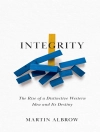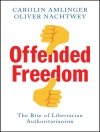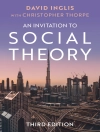In recent years, feminist and queer theory have effectively disavowed both “the human” and revolutionary politics. In the face of massive geopolitical crisis, posthumanists have called for us to reconsider fundamentally the superiority and centrality of mankind and “the human, ” and question how Man can presume to change the world by revolutionary action, particularly when Marx’s dreams seem to have been swept into the dustbin of history.
This provocative book reaffirms what is most basic in feminism – the attack on the “universality” and sovereignty of Man – but contends that the only way this can mean anything other than pessimistic rhetoric is to embrace human agency and the struggle against colonialism and capitalism. In a series of “creolized” readings – Foucault with Ali Shari’ati, Lacan with Fanon, and Spinoza with Sylvia Wynter – the authors demonstrate what is at stake in the ongoing debate between humanism and posthumanism, putting this debate in the context of contemporary global crises and the possibilities of revolution.
In its defense of “political spirituality, ” this book pushes for a new trajectory in response to the gross inequalities of today, one that offers us a very different view of revolution and its present-day potential.
Inhoudsopgave
Introduction
1. Legacies of Erotic Transformation: Feminism and Revolution
2. Burning Problems of Our Time: Revolution, Erotic Ethics, and Political Spirituality
3. An Other Future: The Erotics of Revolution, The Psychosis of Colonialism, and the Haunting Promise of a New Humanity
4. Undertaking Man, Making the Human: Toward a New Ceremony
Conclusion
Over de auteur
Drucilla Cornell is Professor of Political Science, Women’s Studies, and Comparative Literature at Rutgers University. Stephen D. Seely is a Ph D candidate in the Department of Women’s and Gender Studies at Rutgers University












